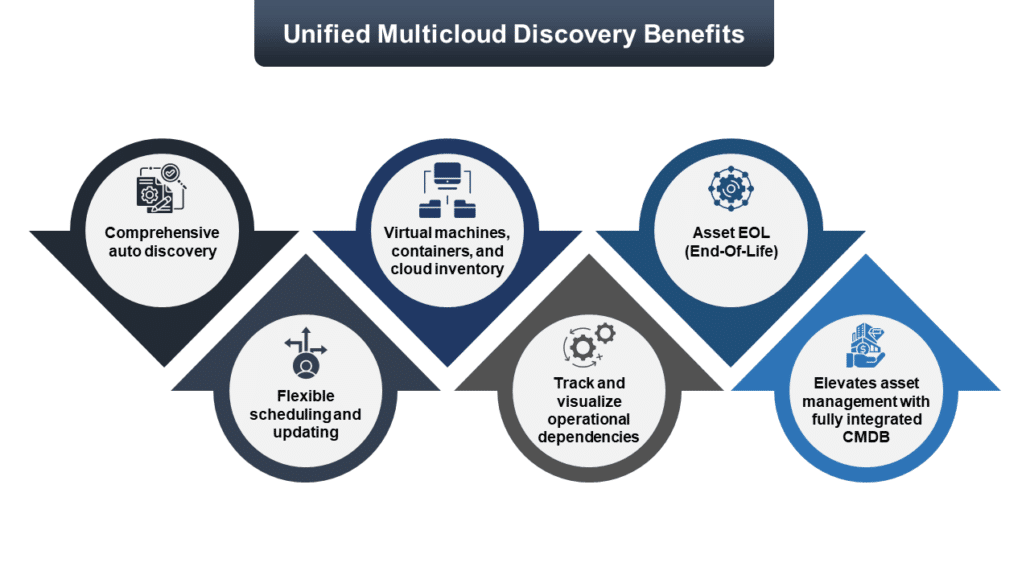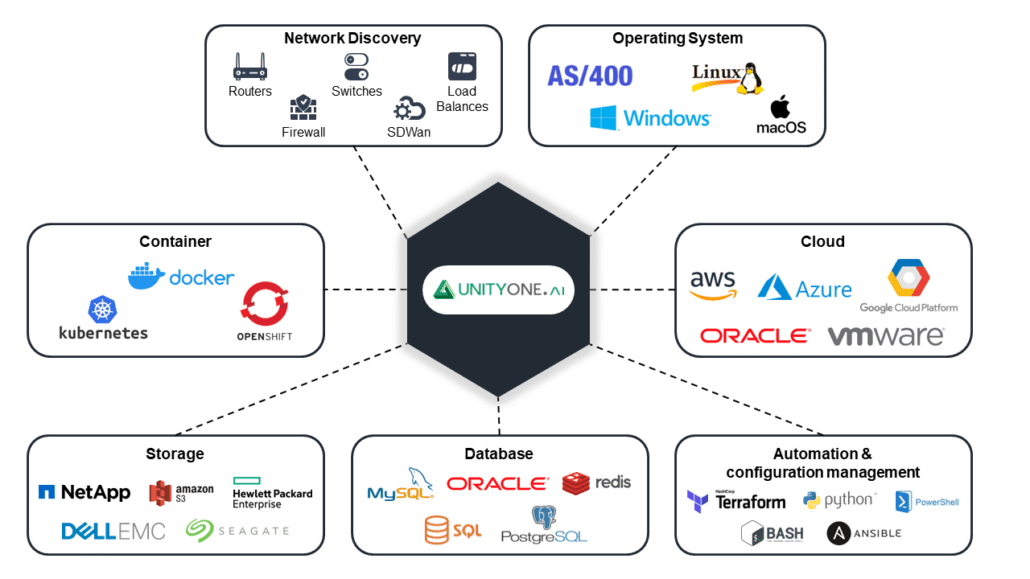Why Is Discovery Critical For ITOps?
Why Is Discovery Critical For ITOps?

Introduction
In the ever-changing world of ITOps, discovery has become a key component to operational efficiency and effectiveness. As organizations are running complex multi-cloud environments, the need for discovery is more important than ever. This blog looks at why discovery is important for ITOps, and how it fits into asset management, incident response, compliance, and overall IT governance.
Asset Management and Optimization
One of the main reasons discovery is so important for ITOps is asset management. Accurate discovery gives you a current inventory of your IT assets. This visibility is key for:
- Resource Allocation: Knowing what you have means you can allocate resources better and not under or over utilising them.
- Cost Management: Tracking software licenses, cloud subscriptions and hardware usage means you can avoid unnecessary spend and optimise your IT budget.
- Lifecycle Management: Knowing the status and location of assets aids in efficient lifecycle management, from procurement to decommissioning.
- IT inventory: IT discovery is the process of finding, cataloging, and maintaining an up-to-date inventory of an organizations IT assets. These assets can include hardware, software, network devices, virtual machines, cloud services and more.
Related Blog : Explore Synergies Of ITOM and Cost Management
Enhanced Incident Response
Discovery is key to better incident response. When an incident happens, having an up-to-date inventory of IT assets means ITOps can quickly see what’s affected and what’s dependent on it. This speeds up the troubleshooting process and reduces mean time to resolve (MTTR). Benefits include:
- Faster Root Cause Analysis: With knowledge of the IT environment, you can see the root cause of the incident quicker.
- Proactive Problem Management: Continuous discovery means you can see potential problems before they become major incidents and do proactive problem management.
Improved IT Governance
Good IT governance requires a clear view of the IT estate. Discovery helps with IT governance by providing the data to make decisions. This includes:
- Strategic Planning: Asset data supports strategic planning and investment decisions, aligns IT to business goals.
- Change Management: Discovery processes track and document changes in the IT estate, reduces risk of unintended consequences during change deployment.
- Policy Enforcement: You can enforce IT policies better when you have visibility of the assets, all devices and software comply to company standards.
Why Choose UnityOne Discovery?
UnityOne offers a wide range of features inside its multicloud discovery product such as onboarding, network device, cloud discovery, operating system, virtual machines, database discovery and load balancers. Users will be able to get a unified view of all cloud resources across multiple platforms, including AWS, Azure, GCP, Oracle Cloud, and OpenStack. By continuously querying cloud-native APIs, users will be able to keep an up-to-date inventory of all relevant resources.

Users will also be able to customize discovery intervals according to their needs. They can schedule scans at convenient times to minimize disruption and ensure that the resource data is always fresh and aligned with their operational requirements. Additionally, it also captures different tracking details, including asset tags, make, model, and operating system information, providing a comprehensive profile of each asset in your multicloud environment. UnityOne.AI supports all latest technologies and legacy systems and modern IT environments.
Related Blog : The Bright Future of IT Asset Tagging & Cloud Cost Allocation: A Guide to Success

Conclusion
In any respect, discovery remains a major module for ITOps and plays a lead role in anchoring most aspects of IT management right from asset optimization to incident response, compliance, and governance. Simple: As organizations grapple with the intricacies of modern IT environments, structures of robust discovery cannot be said to be just beneficial but necessary when one’s organization is talking about investing in them. It means that with an inventory of accurate and current IT assets, organizations can leverage opportunities to enhance operational efficiency, improve security, maintain compliance, and drive informed strategic decisions. In view of this, discovery should be top of the list for any organization seeking excellence in IT operations.



